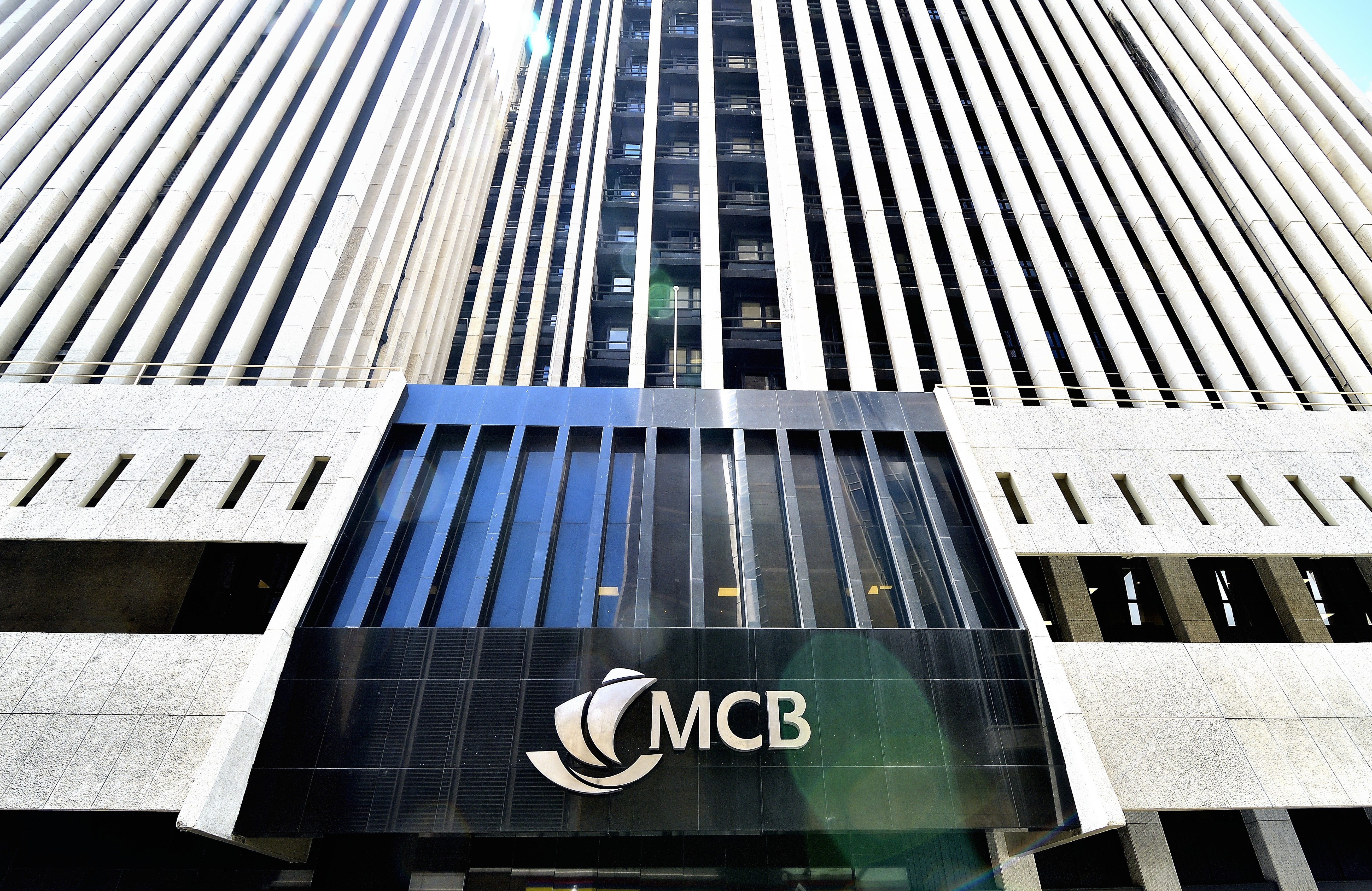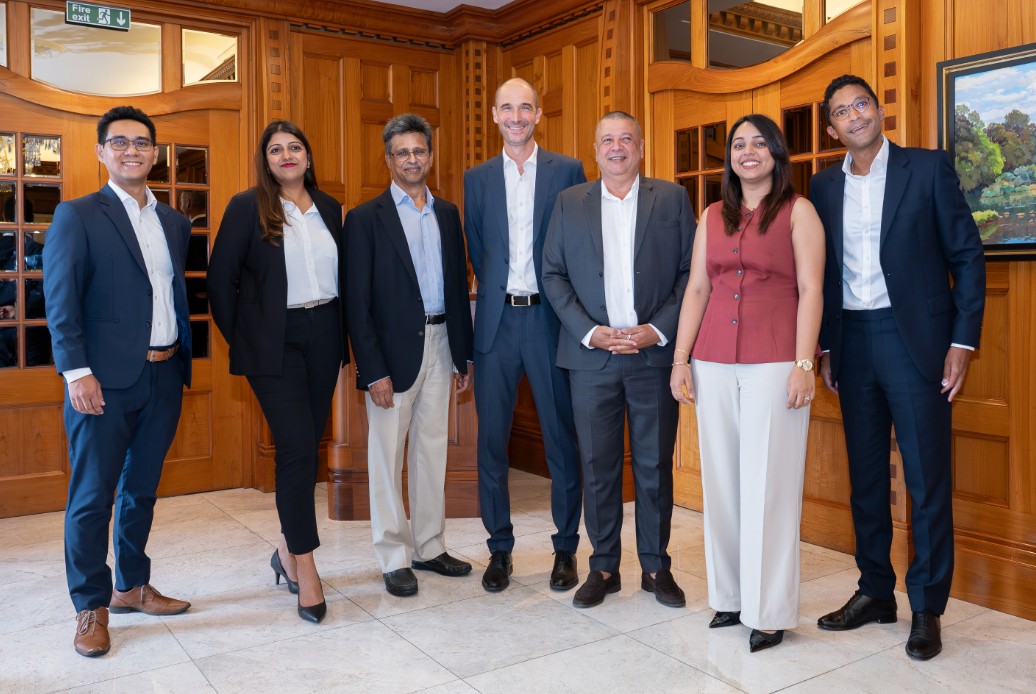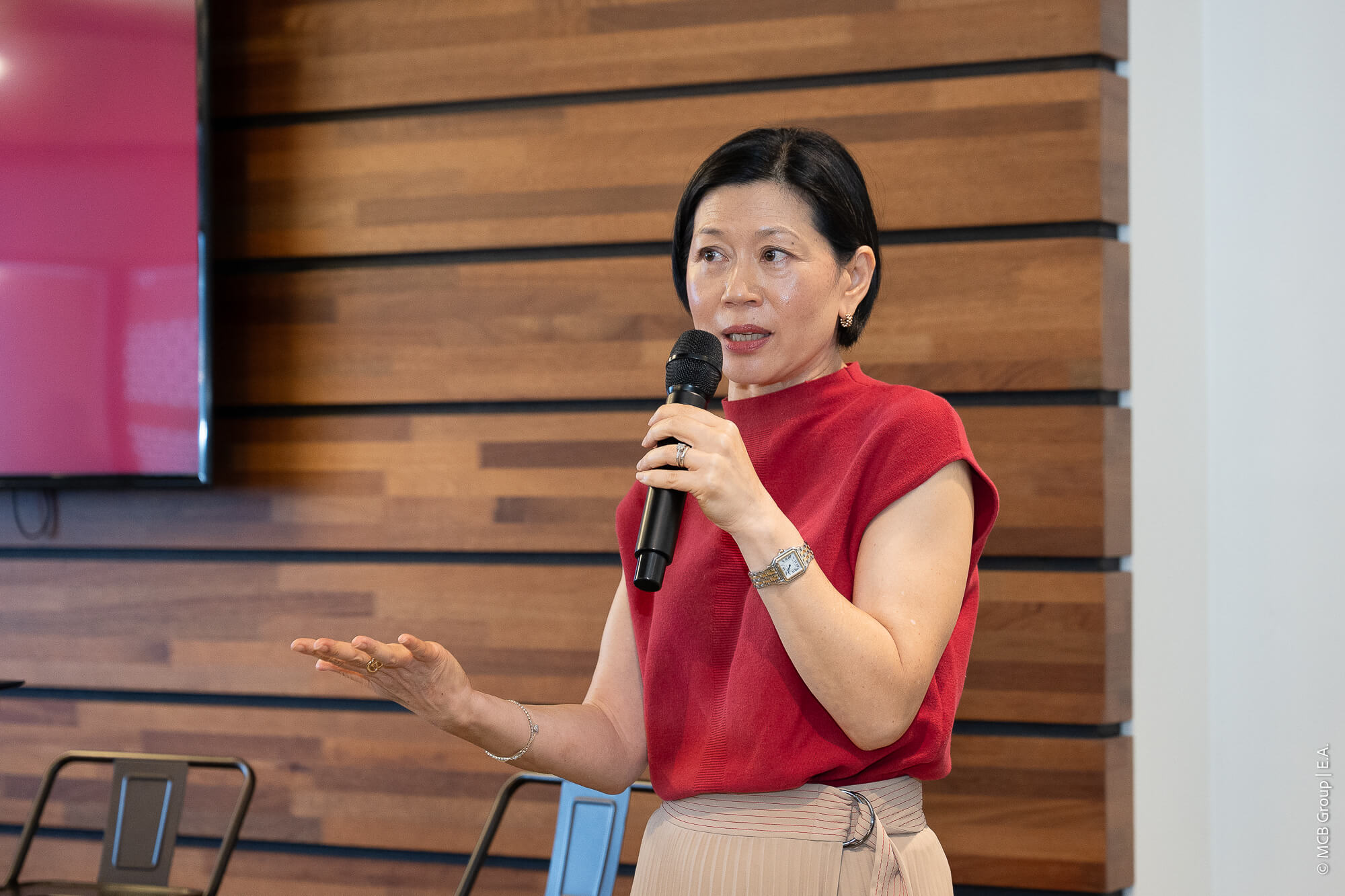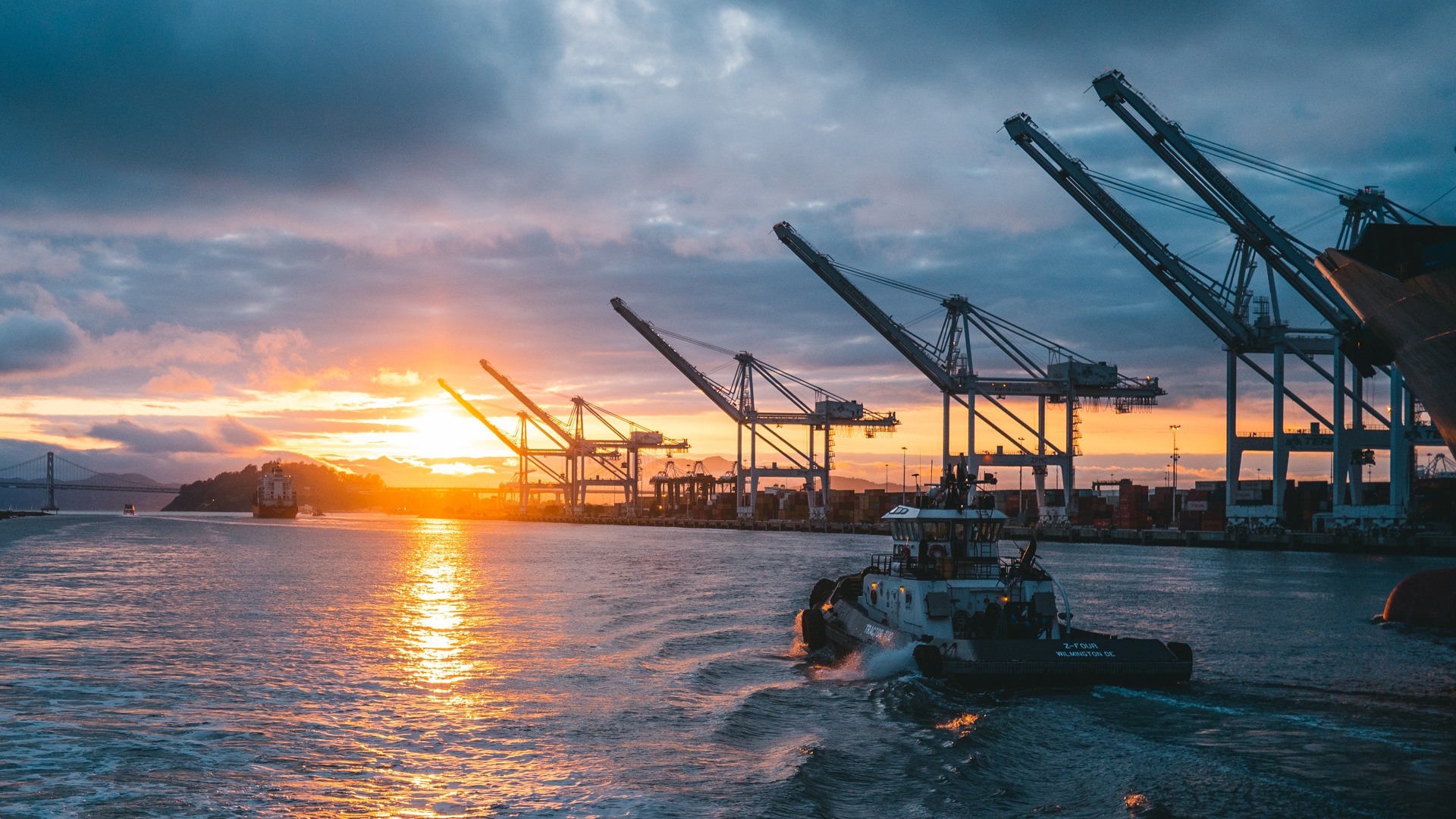- Home
- Investors Centre
- Sustainability
- Talent
- News
- Insights
- TH!NK
- Corporate Governance
- Company Profile
- Board of Directors
- Community
- MCB Offices
Contact Info
African frontiers in the era of “Trump-onomics”

Africa has long been labelled a continent of potential. As the world shifts into a new phase of geopolitical turbulence marked by trade wars, fading preferential regimes, and a multipolar order, the question is how the continent can turn this potential into real economic prosperity. The challenge is not just to withstand external shocks, but to chart a path of competitiveness and sustainable growth. This was the central theme of a recent Alumni Thought Leadership Panel Discussion hosted by the Stellenbosch Business School Alumni Association Mauritius Chapter, in collaboration with The Mauritius Commercial Bank Ltd (MCB), on 21 August 2025 at the MCB Auditorium in St Jean. The event, moderated by Professor André Roux, a renowned economist and futures studies expert, brought together alumni and MCB members for a lively debate on “African Frontiers in the era of Trump-onomics.”
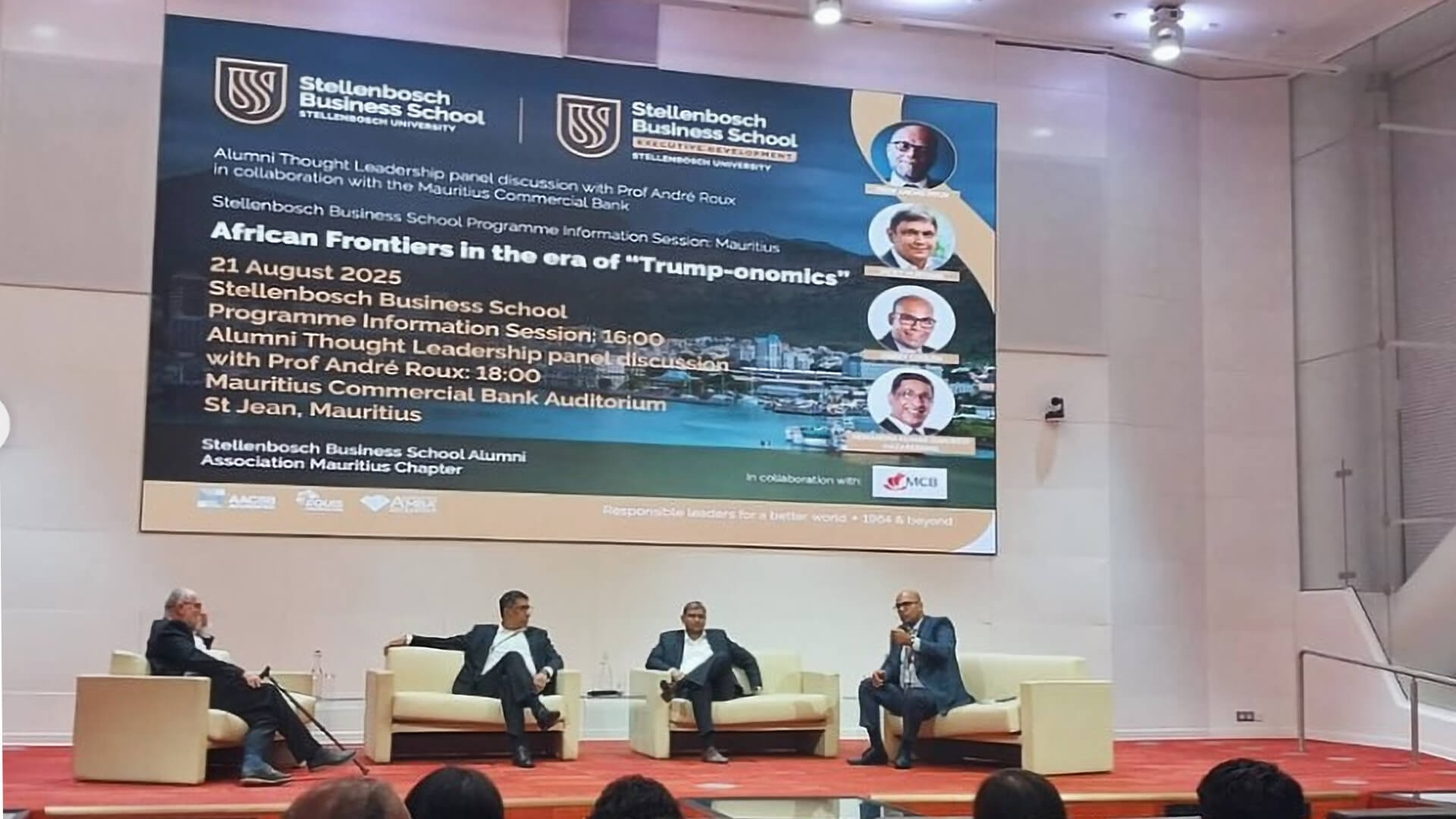
Building long term resilience
Vicky Hurynag, Head of Strategy, Research & Development at MCB, stressed that Africa cannot afford to remain in fire-fighting mode. “Africa must shift the narrative from being seen as a continent of ‘potential’ to being recognised as one of production and value-addition,” he said, adding that resilience needs to be built at three levels: internationally, through smart diplomacy; regionally, by expediting AfCFTA and tackling stubborn connectivity and mobility bottlenecks; and domestically, through reforms and stronger institutions.
Numbers tell a more nuanced story
Sanjeev Hazareesing, Chief Operating Officer, highlighted the shifting geography of Africa’s trade. “Two decades ago, the United States absorbed 36% of Africa’s exports; today that share has fallen to just 6%,” he observed, noting that the continent is far less reliant on Washington even as the expiry of AGOA and new tariff walls hurt specific economies. Meanwhile, he pointed out, “China has become Africa’s largest trading partner, with trade exceeding USD 295 billion in 2024.” Yet the exchange remains largely asymmetrical: Africa exports raw materials while importing manufactured goods. Against this backdrop, Sanjeev argued that the true strategic prize lies in the effective implementation of AfCFTA, which could create a USD 3.4 trillion integrated market, foster scale for African industries, reduce dependence on external partners, and give the continent stronger collective weight in global negotiations.
Entrepreneurship as the next trade wind
The entrepreneurial frontline was brought into focus by Harry Coolen, SME Manager. “SMEs face mounting pressures, from FX volatility to compliance costs and freight delays,” he noted. Yet he also spotlighted Africa’s spirit of innovation. From M-Pesa in Kenya to fintech platforms, digital-native entrepreneurs are creating scalable solutions that connect markets faster than regulators can keep pace. With a median age of just 19, Harry remarked, “Africa’s youth are adapting and designing the next trade winds.”
A collective message
What made the panel compelling was the synergy across these perspectives. The panelists converged on the same insight: Africa cannot afford to be passive in the face of global turbulence. By investing in connectivity, strengthening institutions, fostering innovation, and negotiating as a bloc, the continent can shift its story from being defined by external shocks to actively shaping the next chapter of global trade and growth.
Subscribe to our Email Alerts
Stay up-to-date with our latest releases delivered straight to your inbox.
Contact
Don't hesitate to contact us for additional info
Email alerts
Keep abreast of our financial updates.





